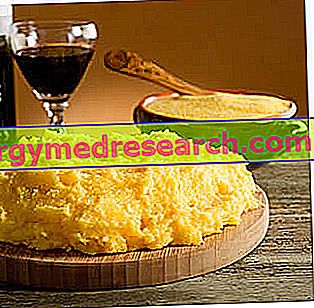Triglycerides are lipids found in foods (of animal and vegetable origin) and in the human body.
Some triglycerides are of endogenous origin and are produced by the liver. This happens mainly when the diet is too rich in carbohydrates and ethyl alcohol, or in the presence of chronic hyperglycemia; protein excess also contributes.
In the blood, triglycerides absorbed in the intestine are transported by lipoproteins called chylomicrons to the suburbs.

Chronic excess of blood triglycerides (elevated VLDL) is a dyslipidemia / hyperlipemia that is related to:
- Obesity and other pathologies of the spare, also metabolic syndrome.
- Fat liver.
- Atherosclerosis.
- Cardio and cerebro vascular events.
- Pancreas complications.
NB . The disproportionate increase in triglycerides in the blood after a meal is normal; it becomes pathological only when it occurs in fasting.
What to do
Hypertriglyceridemia is asymptomatic. The only clinical sign concerns the very serious conditions (genetic pathologies) and is manifested by the "bleaching" of the blood (triglycerides are very faint in color).
This means that the whole population should seek medical attention for:
- Visit and assessment of risk factors:
- Familiarity.
- Type 2 diabetes mellitus.
- Alcoholism.
- Hypothyroidism.
- Nephrotic syndrome and renal failure.
- Beta-blocker drugs.
- Birth control pill.
- Diuretics (eg furosemide).
- Steroid drugs.
- Blood analysis.
In the case of a positive diagnosis, it is essential:
- If identified, eliminate or reduce the possible triggers (eg hyperglycemia).
- Contact a dietician for high triglyceride diet therapy.
- Upon prescription, start a drug therapy.
- If useful or necessary, take supplements or other natural remedies against high triglycerides.
- Practice constant motor activity.
- In case of overweight, lose weight.
- Reduce other cardiovascular risk factors:
- Obesity.
- Hypertension.
- Hypercholesterolemia.
- Hyperglycemia.
- Oxidative stress.
What NOT to do
- Ignore medical prescriptions.
- Skip routine checks for high triglycerides or any related parameters (blood glucose).
- Perform analyzes without respecting fasting.
- Follow an unbalanced or recommended diet from sources of dubious professionalism.
- Abuse alcohol.
- Adopt a sedentary lifestyle.
- Grease or stay overweight.
- Maintain unchanged or increase cardiovascular risk factors.
- Take medicines that can cause or worsen hypertriglyceridemia.
- Ignore diseases that can cause or worsen high triglycerides.
What to eat
- Low-calorie diet to lose weight in case of overweight.
- Small portions of carbohydrate-based foods:
- Cereals and derivatives (pasta, bread, etc.).
- Potatoes.
- Dehulled legumes.
- Very sweet fruit.
- Among the foods rich in carbohydrates, prefer those with a low glycemic index:
- Integrals or fiber-enriched (such as those added to inulin).
- Whole legumes.
- Little or medium sweet fruit.
- Reduce the glycemic load of meals:
- Increasing the number (around 5–7 in all).
- Reducing total caloric intake.
- Decreasing the portions, especially with reference to carbohydrate-rich foods.
- Spread the carbohydrates in all meals (with the sole exception of dinner or evening snack).
- Reduce the glycemic index of meals:
- By increasing the quantity of low-calorie, fiber-rich vegetables: radicchio, lettuce, zucchini, fennel, etc.
- Enriching all dishes with low fat and protein (slow digestion and absorption of sugars and prevent the glycemic surge):
- Extra virgin olive oil.
- Chicken breast, cod fillet, egg, lean ricotta, light milk flakes etc.
- If it is impossible to eliminate the attitude to alcohol, prefer red wine (maximum 1-2 small glasses per day).
- Eat foods rich in omega 3:
- Eicosapentaenoic and docosahexaenoic acid (EPA and DHA): they are very active from a biological point of view. They are found in fishery products and in algae. They play a protective role against metabolic pathologies. They significantly reduce the imbalances created by high blood sugar and decrease triglycerides. The foods rich in these nutrients are: Sardinian, mackerel, bonito, alaccia, herring, alletterato, tuna belly, needlefish, algae, krill etc.
- Alpha linolenic acid (ALA): is less active. Being the precursor of the EPA, it has the same function. It is found mainly in the fat fraction of certain foods of vegetable origin or in the oils of: soy, linseed, kiwi seeds, grape seeds, etc.
- Consume foods rich in vitamin antioxidants; protect against oxidative stress of free radicals (strongly correlated to all metabolic disorders and related complications):
- Vitamin E provitamine A (carotenoids): vegetables and red or orange fruits (apricots, peppers, melons, peaches, carrots, squash, tomatoes, etc.); they are also found in shellfish, milk, yolk and cheese.
- Vitamin C: acidulous fruit and some vegetables (lemons, oranges, mandarins, grapefruit, kiwi, peppers, parsley, chicory, lettuce, etc.).
- Vitamin E: fat part of the seeds and in the relative oils (wheat germ, maize germ, sesame, etc.); small quantities are also found in vegetables and fatty fruits (eg avocado).
- Prefer foods rich in polyphenols (simple phenols, flavonoids, tannins). These antioxidants decrease oxidative stress and improve metabolism; reduce the rate of absorption of carbohydrates. They are rich: vegetables (onion, garlic, citrus fruits, cherries, etc.), fruit and related seeds (pomegranate, grapes, berries, etc.), wine, oilseeds, coffee, tea, cocoa, legumes and whole grains, etc.
- Follow a small fast every day taking advantage of the night's rest. Some studies suggest that fasting significantly improves blood glucose and triglyceridemia parameters. Without compromising the overall distribution and the balance of the diet, it is possible to spend about 10-12 hours between the last meal of the evening and the first of the following day.
What NOT to Eat
- Few meals and very abundant.
- High-calorie foods, especially rich in refined sugar.
- Meals characterized by large glycemic loads, or too rich in: pasta, bread, pizza, baked goods, polenta, rice, potatoes, very sweet fruit, jam, sweets, etc.
- Foods with high glycemic index: boiled rice, boiled potatoes, fruit juice, some very sweet fruits (ripe bananas, etc.), sweets, etc.
- Foods with a prevalence of carbohydrates with few fibers: white bread, white pasta, polenta, etc.
- Alcohol above 1-3 units per day.
- Foods poor in "good fats".
- Foods rich in "bad lipids":
- Saturated fatty acids: contained above all in fatty cheeses, in fast foods (frankfurters, hamburgers, etc.), in fatty cuts of meat, in bifractionated oils, etc.
- Hydrogenated fatty acids (especially in trans form): they are contained in foods fried with tropical oils, in margarines, in junk foods prepared (sweet and savory snacks) etc.
- Poor or depleted foods of vitamin and polyphenolic antioxidants:
- Only vegetables and cooked fruit.
- Only vegetables or preserved fruit (canned, dried, salted, pickled, in oil etc.).
Natural Cures and Remedies
Among the natural remedies for lowering high triglycerides we recognize:
- Sports or physical motor activity: prevents hypertriglyceridemia and promotes treatment. Furthermore, it reduces atherosclerotic and cardiovascular risk. Aerobic activities are considered more effective.
- Soluble fiber supplements: modulate the intestinal absorption of all nutrients; they also decrease the glycemic peak in the blood, preventing the insulin surge that favors the increase of triglycerides. Some examples of products rich in soluble fiber are: psyllium seeds, glucomannan, chitosan, guar gum and other gums, garcinia cambogia etc.
- Chitosan supplements: it is a non-available carbohydrate obtained from the chitin contained in the shell of the crustaceans. able to hinder the intestinal absorption of fats.
- Supplements based on oils derived from fishery products:
- Cod liver oil: rich in omega 3 essential fatty acids (EPA and DHA), vitamin D and vitamin A.
- Krill oil: krill is a part of the so-called plankton; as well as omega 3 essential fatty acids (EPA and DHA) it is also rich in vitamin A.
- Seaweed oil: rich in omega 3 essential fatty acids (EPA and DHA).
- Supplements based on oils derived from the germ of cereals: the most common is wheat. It is rich in essential polyunsaturated fatty acids and vitamin E.
- Vitamin antioxidant supplements.
- Supplements of polyphenolic antioxidants.
- Phytosterol supplements.
Pharmacological care
- Fibrates: used especially when triglycerides exceed the value of 885mg / dl. They also fight bad cholesterol.
- Fenofibrate (eg Lipsin, Fulcro, Fenolibs, Lipophene).
- Gemfibrozil (eg LOPID, Genlip, Gemfibrozil DOC).
- Statins: they are more used in cholesterol-lowering therapy but are also effective in the treatment of mild hypertriglyceridemia.
- Atorvastatin (eg Totalip, Torvast, Xarator).
- Simvastatin (eg Zocor, Simvastat, Omistat, Quibus, Setorilin).
- Pravastatin (eg Selectin, Langiprav, Sanaprav).
- Nicotinic acid derivatives: they inhibit the synthesis of triglycerides and cholesterol, thus lowering their serum levels.
- Acipomix (eg. Olbetam)
- Omega 3 fatty acids (eg Esapent, Seacor, Eskim).
- Bile acid sequestrants: indicated only in case of statin resistance in the context of hypertriglyceridemia. They must be associated with fibrates or statins.
- Colestipol (eg Colestid).
- Cholestyramine (eg Questran).
- Coleselvam (eg Cholestagel).
Prevention
- Physical activity: the best solution is to practice sports every day. Large volumes of work are not necessary; on the contrary, segmentation of the session is shown to be more effective twice (after the main meals).
- Specific diet and supplements.
- Pharmacological therapy.
- Treat obesity and other related physical complications.
- Eliminate the risk factors on which it is possible to intervene (birth control pills, diuretics, etc.).
Medical Treatments
No other medical treatments are known to help reduce high triglycerides in the blood.



